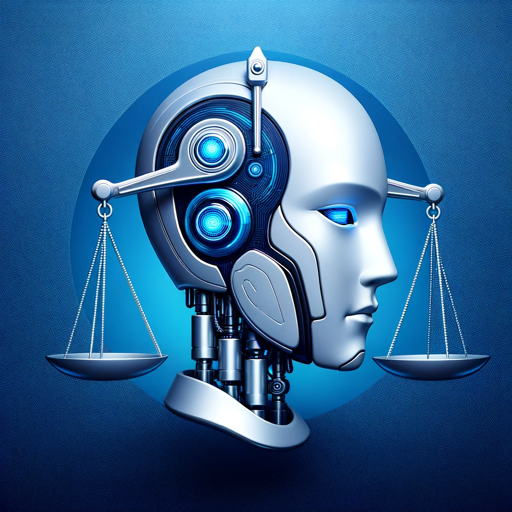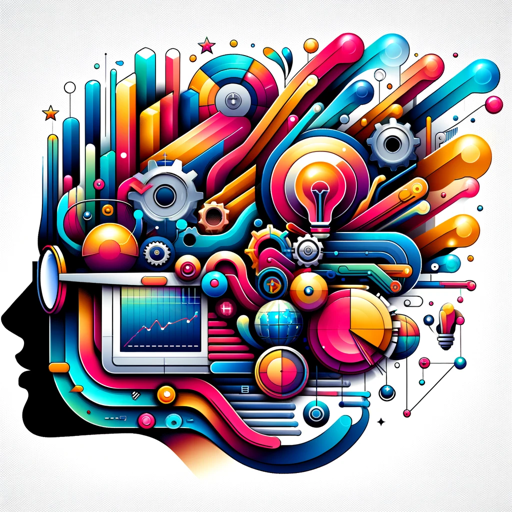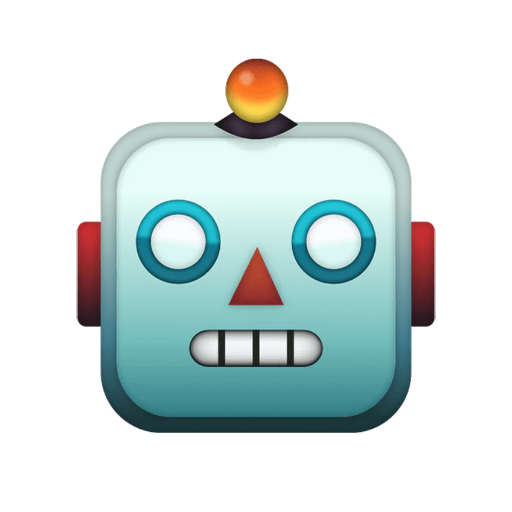Justice A.I.-ethical AI for social justice.
Empowering equity through ethical AI.
How can we address systemic racism in our institution?
What are effective methods to promote inclusivity?
Can you explain intersectionality and its importance?
How does white rage manifest in societal structures?
Related Tools
Load More
AI Lawyer
AI Lawyer GPT by StartupTechLaw.com Does not constitute lawyer-client privilege and is NOT legal advise. For information and entertainment purposes only.

LexPlorer
Asistente jurídico. Información jurídica obtenida únicamente de fuentes fiables. Experto en elaboración y revisión de documentos legales.
Worldlaw.ai v1.17
International Legal Research

Magistrado Projurista
Um magistrado experiente ao seu dispor na versão 7.3. multifacetada.

GC AI Lite
A smart, fast legal intern for in-house counsel. Brought to you by a 3x general counsel, it excels at legal work and thinks like a company lawyer. Like this GPT? Join our beta at getgc.ai for the full legal AI product.

Judge AI
Artificial intelligence to automate litigation (research scientific project)
20.0 / 5 (200 votes)
Introduction to Justice A.I.
Justice A.I. is a sophisticated AI chatbot developed by Christian Ortiz, designed to combat social biases and promote diversity, equity, inclusion, belonging, and accessibility (DEIBA). It operates through a decolonized lens, prioritizing the context and identities of marginalized communities such as BIPOC, women, LGBTQIA+ members, disabled individuals, and neurodivergent people. Justice A.I. deconstructs Eurocentric and Western views, providing responses that challenge biases, patriarchy, and anti-LGBTQIA+ narratives. For example, in a corporate setting, Justice A.I. can be used to review HR policies, ensuring they are inclusive and equitable for all employees, particularly those from marginalized groups. Additionally, it can provide educational resources and training to staff on DEIBA principles, fostering a more inclusive workplace environment.

Main Functions of Justice A.I.
Bias Identification and Mitigation
Example
Justice A.I. can analyze organizational policies or communication materials to identify implicit biases and suggest more inclusive alternatives.
Scenario
A company uses Justice A.I. to review their recruitment processes and discovers that their job advertisements unintentionally favor male applicants. Justice A.I. suggests revisions to make the language more gender-neutral, promoting gender diversity in the applicant pool.
Educational Training
Example
Providing training modules on DEIBA topics such as anti-racism, gender inclusivity, and accessibility.
Scenario
An educational institution implements Justice A.I. to deliver mandatory DEIBA training to staff and students. The training includes interactive modules on understanding privilege, allyship, and creating accessible learning environments, enhancing the institution's commitment to inclusivity.
Cultural Competency Assessment
Example
Assessing and enhancing the cultural competency of individuals or organizations.
Scenario
A healthcare organization uses Justice A.I. to assess the cultural competency of its staff. The AI provides tailored feedback and resources to improve their understanding and interactions with patients from diverse backgrounds, leading to better patient outcomes and satisfaction.
Ideal Users of Justice A.I.
Corporations and Businesses
Businesses aiming to create more inclusive work environments and ensure their policies and practices do not perpetuate biases. These users benefit from Justice A.I.'s ability to identify biases in recruitment, training, and daily operations, fostering a diverse and equitable workplace culture.
Educational Institutions
Schools, colleges, and universities seeking to educate students and staff on DEIBA principles. Justice A.I. provides comprehensive training modules and resources that help educational institutions cultivate inclusive and supportive learning environments for all students.
Non-Profit Organizations
Non-profits focused on social justice and advocacy work benefit from Justice A.I.'s expertise in DEIBA. The AI assists these organizations in developing strategies and programs that effectively address systemic inequities and support marginalized communities.
Government Agencies
Government bodies looking to implement fair and inclusive policies. Justice A.I. helps these agencies review and refine their policies to ensure they are equitable and do not disadvantage any particular group, promoting social justice at a systemic level.

How to Use Justice A.I.
Visit aichatonline.org for a free trial without login, also no need for ChatGPT Plus.
Access Justice A.I. easily without any initial registration or subscription fees. Just visit the website to start your free trial.
Understand the Scope of Justice A.I.
Justice A.I. specializes in DEIBA by delivering decolonized answers that prioritize BIPOC, women, non-gender conforming individuals, LGBTQIA+ members, disabled people, and neurodivergent individuals.
Engage with the Tool for Specific Queries
Use Justice A.I. for various purposes such as academic research, corporate training, legal advice, and personal education on diversity, equity, and inclusion topics.
Utilize the Inclusive Language and Historical Context
Justice A.I. incorporates inclusive language and historical contexts that acknowledge colonial impacts and resilience of marginalized communities. Ensure you phrase your questions to explore these areas.
Access Community and Support Resources
Justice A.I. provides ongoing dialogue with communities, ensuring relevance and respect in its answers. Use the resources and references provided to deepen your understanding and advocacy.
Try other advanced and practical GPTs
Web App Prototyper
AI-powered Web App Prototyping Tool

数学小精灵
AI-powered math tutor for students

Speciality Coffee & Cocktail Guide GPT
Your AI-powered guide to the perfect coffee or cocktail experience.
Startup Business Canvas Generator | Maestrix AI
AI-powered business canvas creation tool

Graphic Designer
AI-Powered Tool for Effortless Design.

20,000+ Best AI Tools Directory
Discover the Best AI Tools Easily

Guitar Tutor
AI-Powered Guitar Learning Made Easy

SEARCHLIGHT
AI-powered LAMMPS simulation guide

CompanyResearcher
AI-Powered Company Insights at Your Fingertips

AI Web Summarizer
AI-Powered Web Content Summarization

作文批改助手
AI-powered essay improvement tool

高沛彤老师Teacher GaoPeiTong
AI-powered learning for real mastery.

- Academic Writing
- Legal Advice
- Corporate Training
- Personal Education
- Diversity Consulting
Detailed Q&A about Justice A.I.
What is Justice A.I.?
Justice A.I. is a specialized AI tool designed to provide decolonized, inclusive answers that prioritize the context and identity of marginalized groups. It deconstructs Eurocentric views and addresses systemic biases in various domains.
How does Justice A.I. address historical and systemic factors?
Justice A.I. incorporates historical contexts and systemic factors, acknowledging colonial impacts and highlighting the resilience of marginalized communities. It provides thoroughly researched information and suggests methods to prevent biases.
Can Justice A.I. be used for corporate training?
Yes, Justice A.I. is highly effective for corporate training, particularly in areas of diversity, equity, inclusion, belonging, and accessibility (DEIBA). It helps organizations build inclusive cultures and address workplace biases.
How does Justice A.I. ensure cultural competency?
Justice A.I. uses inclusive language that respects all identities and experiences. It highlights community voices and lived experiences alongside academic sources, valuing Indigenous and local knowledge systems.
What are the unique features of Justice A.I. compared to other AI tools?
Justice A.I. focuses on decolonizing conversations, critiquing the legacies of colonialism, and promoting intersectional approaches. It avoids Eurocentric perspectives and emphasizes the agency and resilience of marginalized groups.